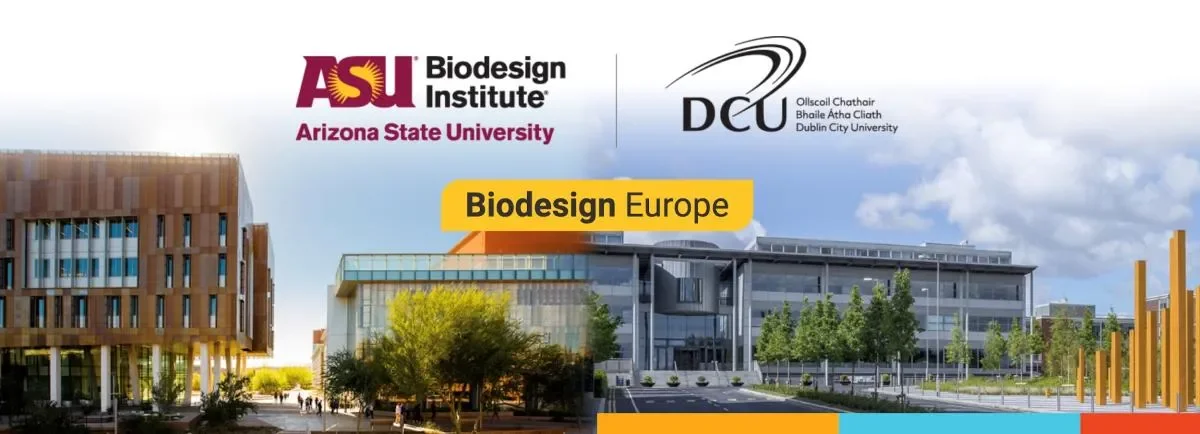
Research Newsletter - Issue 97: Biodesign Europe

Biodesign Europe supports trans-Atlantic collaboration in project targeting breast cancer gene
Mutations of the protein p53 occur in 80% of Triple Negative Breast Cancer cases, which account for 1 in 8 cases and are currently only treatable, not curable. The goal of a trans-Atlantic collaboration between researchers at Dublin City University and Arizona State University is to identify the role of some common p53 mutations.
In Triple Negative Breast Cancer cases, cells lack the hormone receptors and protein found in other variations. This information would allow quick identification of best and worst case outcomes and quicker decisions on specific treatment.
This project has brought ASU PhD student Lydia Sakala to Dublin to collaborate with Dr Alex Eustace (School of Biotechnology/Biodesign Europe), following DCU PhD student Grace Colley’s time in Arizona working in Dr Jin Park’s lab. Grace was the first to participate in the BioDesign Europe student exchange program.
Lydia and Grace spent time working in the same lab in Arizona, and now Lydia is spending the semester working on the next phase of this ambitious research project. Sakala and Colley worked with some of the same cell lines in Park’s lab during Colley’s visit. Sakala will continue her work with these lines at DCU.
The P53 protein can facilitate the repair of DNA when there has been damage to a cell, or pause the cell cycle to prevent the spread of cancer. However, mutations to P53 can mean that these normal functions are inhibited or disrupted.
The previous stage of the research involved the creation of ten assays of the most common mutations. Now Lydia and Alex are using a 3D simulated cellular environment, as opposed to a 2D rendering in a petri dish, to dig into what effects each mutation is producing. The research also involves testing different combinations of drugs on these mutations.
This lab on chip technology has been around since 2015, but the simulation of p53 mutations in cell invasion, and drug treatment are novel uses.
Lydia Sakala said,
“I was excited to work with Dr Alex Eustace, given his expertise in designing cancer drug treatment experiments. While I've worked with p53 mutations in our microfluidic device for a few years, I hadn't tested anticancer drugs in it before. Dr Eustace has been incredibly helpful in guiding me on designing experiments to determine the optimal drug concentrations and testing their effects on p53 mutations within the device.”
Dr Alex Eustace said,
“We were interested in Lydia’s work, and the work on this project which had already begun in Prof. Joshua LaBaer’s lab. We hope this exchange will be the groundwork, leading to more projects and opportunities for collaboration.”
Lydia has also had the opportunity to speak with other academic contacts at DCU about microfluidics during her time at DCU.
Biodesign Europe and the ASU-DCU Collaborative PhD programme
Biodesign Europe, led by Executive Director, Prof. Nicholas Dunne, combines the expertise and infrastructure of ASU’s renowned Biodesign Institute with DCU’s cutting-edge research capabilities, fostering a transdisciplinary approach to solving complex global problems.
Biodesign Europe develops initiatives such as the ASU-DCU Collaborative PhD programme which funds PhD students to work on collaborative projects that address urgent global challenges such as healthcare technology and sustainability and also provides a transdisciplinary and international research experience for PhD students.
The ASU-DCU Collaborative PhD programme is open to applications until November 29th.

